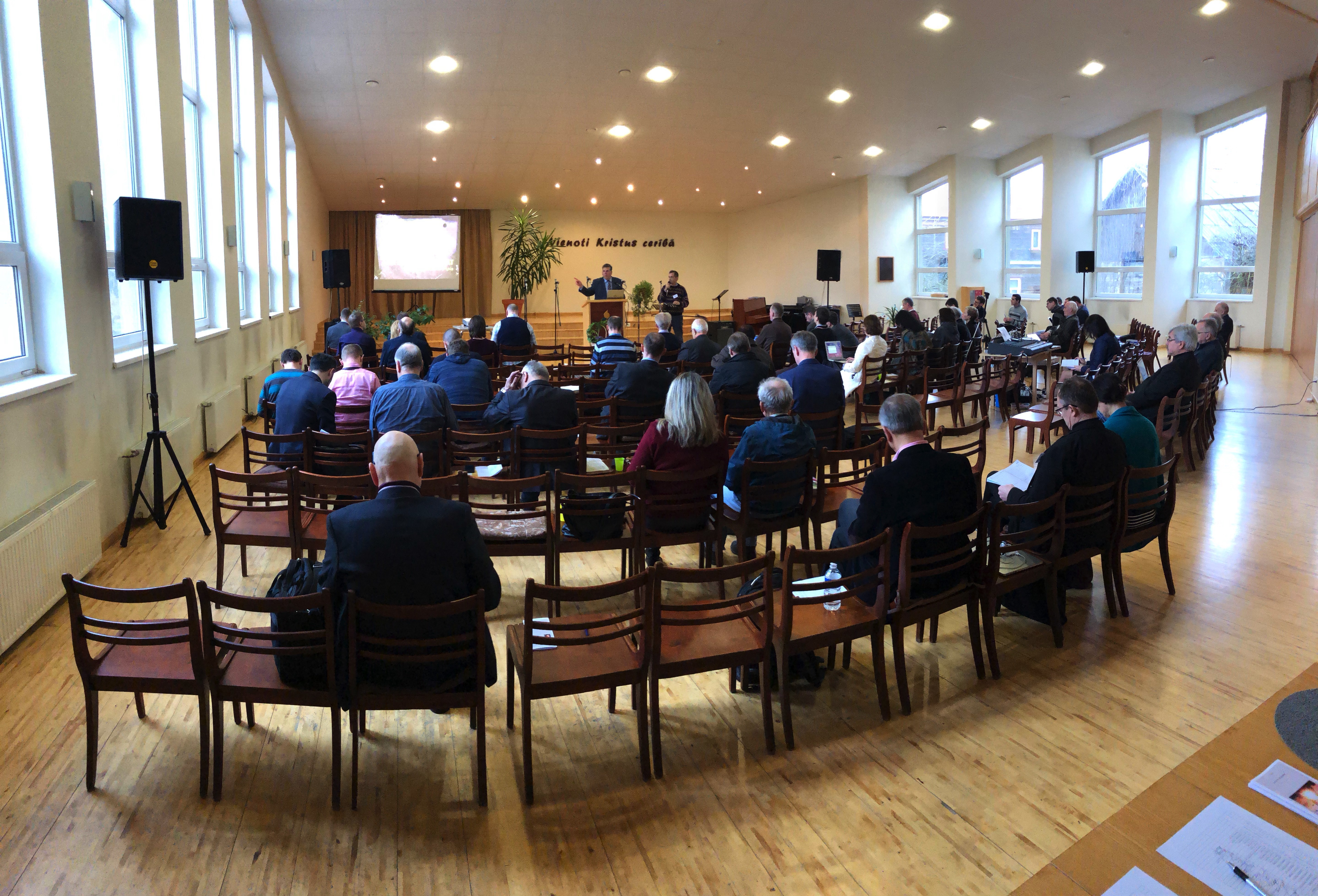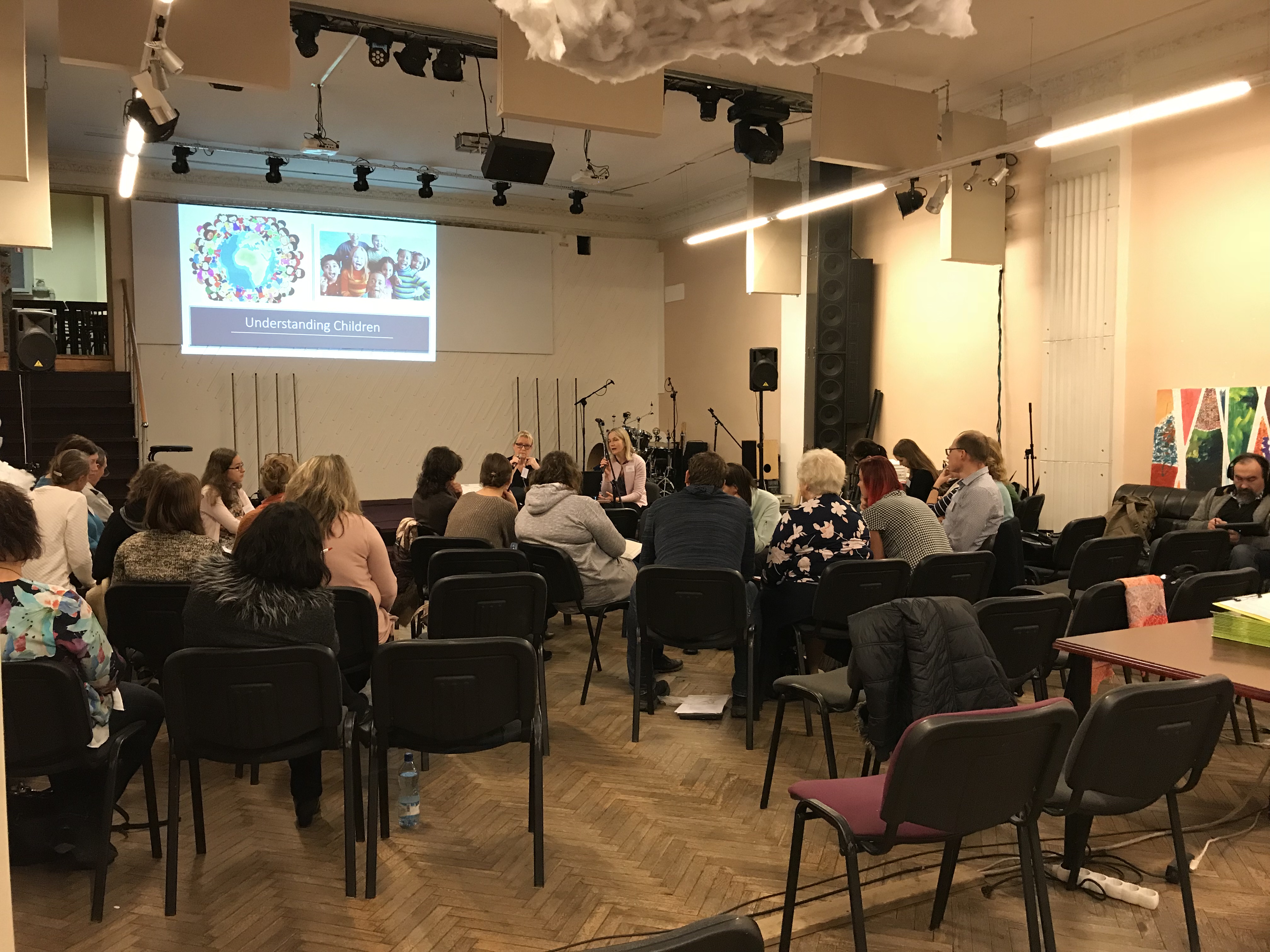Mental Health Course in the BAUC
On 27th January 2019, the last module of a three-part mental health course Binding up the broken-hearted was conducted in the Baltic Union. The course was meant primarily for the departmental leaders and their teams, whose work in church includes a lot of communication with church members, as well as people from local communities.
We live in a sinful world among broken people, and church is not exception in that sense. What can we do to help those around us, what can we do to help ourselves? We can learn to listen, to understand, and to be compassionate. Paul says, “Be kindly affectionate to one another with brotherly love … Rejoice with those who rejoice, and weep with those who weep” (Romans 12:10, 15).
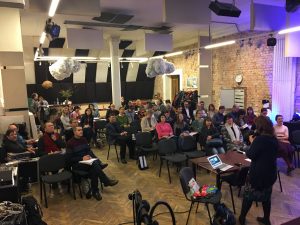
|
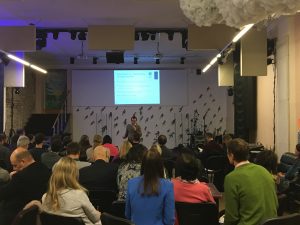
|
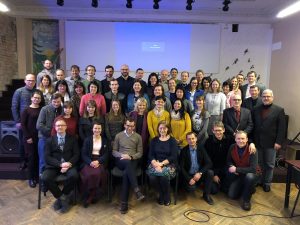
|
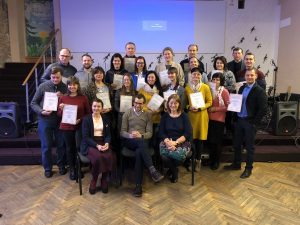
|
One of the lecturers Karen Holford explained it well: “Mental wellness is an important issue because it touches all of our lives in some way. Loneliness, broken relationships, and stressful lifestyles are just a few of the factors that can increase the risk of mental unwellness and distress in our lives as well as the lives of those we love, and the community around us”.
Therefore, the course was meant to upgrade the participants’ people skills; to help them to understand some most common mental challenges people face, to be good peacemakers and listeners, to understand emotions and people’s relational needs, and to learn some practical tips to support oneself and others in the times of crises.
Of course, with such a short course, there is too little time to go deeply into each topic, but the lecturers Dr. Torben Bergland from the General Conference and Karen Holford from the Trans-European Division did their best to give a general overview of these important topics and it was very much appreciated by the participants. They wrote in their feedback: “Just in time!”, “It opened my eyes about addictions”, “Very useful information – practical and relevant”, “Very actual! I need more information”, “Vitally important topics!”, “I learned to build healthy relationships”, “Professional lecturers!”, etc.
During the course, the participants had a special home assignment; thinking about and writing down their personal life narrative in order to see God’s leading in it. They could give their personal testimonies in groups during two modules. These discussions were points of mutual connection and acts of worshipping God as the Ruler of the Universe, who at the same time is their personal Saviour; and who has a good plan for the lives of each one of us. The participants wrote: “Learning through mingling with colleagues and ministers is very good; to know their struggles, hopes and expectations”, “I liked this part My Story. I learned to be more attentive to the pain of others. Relationships are most important”.
When asked about topics the participants would be interested in the future, many of them mentioned addictions – how to help people (and especially youth) with different addictions, how to organise groups and support healing. Many other topics were also named, such as burnout, how to deal with criticism, health coaching, emotional intelligence, depression, self-awareness, and others. Many participants pointed out intergenerational worship as a topic they would like to learn more about, and would like to implement in their churches. One interesting topic suggestion stood out from others – anxiety and its relation to the eschatology. Church growth, involving others, and organising work were other points of interest.
There is always something that can be done better; always ways to improve. The participants were generally very happy and grateful about the course, but at the same time, they longed for longer discussions, practical exercises, and more time for questions and answers. They even proposed some possible ways to achieve it: to have questions and materials sent beforehand, and to conduct online courses with face-to-face meetings in the middle and / or in the end. One participant also felt that this kind of course could be conducted for a bigger audience. The weekend-long module was remembered with good words.
Karen Holford summarised the course well: “Some participants told me that what they learned about emotional balance and strengthening relationships had already inspired them to make changes in their lives and to build stronger connections with their own family members. This is where we can start to make the most difference, and the ripples of healthy relationships and joyful lives will spread out to bring love and joy to others too”.
